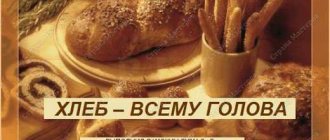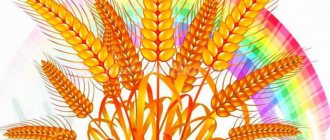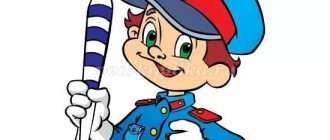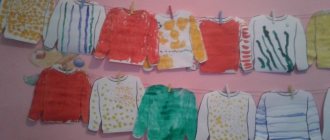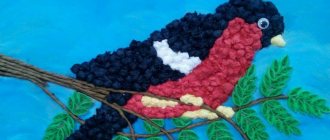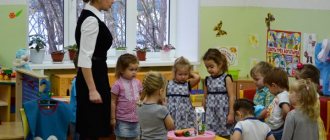Bread is the head of everything
Technological map of open organized educational activities
in the middle group.
Educational field: "Communication"
Section: “Russian language”
Topic: “Bread is the head of everything.”
Target:
Introduce children to the process of growing bread. Know about how much work grain must go through before turning into fragrant bread. Pay attention to the work of people, how people grew in the old days, and how modern machines help grow bread. Foster a caring attitude towards bread and an understanding of the inadmissibility of playing with bread. To consolidate knowledge about the type of grain and bread. To cultivate respect for the work of a farmer and baker.
Bilingual component:
bread - nan, baker - naubayshy, mill - diirmen, flour - un, grain growers - eginshiler.
Equipment:
visual aid, illustrations about bread, flour, dough, wheat, etc.
| Stages of activity | Teacher's actions | Children's activities |
| Motivational and stimulating. | The teacher welcomes the children and invites them into the circle of joy: We are all one family in the group, Everyone is happy - both you and me. We love being together very much, Say “good morning”! | Greet the teacher and answer questions. |
| Organizational - search. | Children today we will talk about the most important food - our daily bread. I want to start with a riddle (the answer is hidden under a napkin). “Soft, fluffy and fragrant, it is black, it is white, and sometimes it is burnt. (bread)". Yes, this is bread. Many people work hard to bring bread to our table. (show illustrations as the story progresses). 1. “Let’s start talking” - working with the slide: a) looking at an illustration about bread; | They show a desire to learn new words and develop spoken language. Working with slides for speech development. New words are named in Russian by the teacher, in choir, individually. |
| b) Screening of the documentary film “Where did the bread on our table come from?” | Show interest and listen carefully. | |
| c) RTV Now let's check whether you watched the film carefully. Let's play the game "Your Place" | Describe according to plan and place in the correct order. | |
| d) F/m “Knead the dough” We knead the dough, knead it, knead it! Press the dough, press it, press it Afterwards we will take a rolling pin, Roll out the dough thinly Let's set the cake to bake! | Perform f/m. | |
| e) Work on sand therapy. And now guys, we also need to work. First, as grain growers, we will prepare the land for sowing in the sand. | Children draw stripes in the sand. | |
| f) Practical task “Sowing seeds”. Work using Montessori technology. We sort the seeds by color. | Children will sort the wheat and beans themselves. | |
| 2. D/i “Name it in Russian” (repetition). Toys, pyramid, horse, doll, ball, etc. a) Children, who knows the poem about toys? Outdoor game "Toys". | Points to the toy and names it in Russian. We play with toys., We call them toys. Tumbler, bear, gnome, Pyramid, cube, house. Make the appropriate movements according to the verse. | |
| 3. Work using mnemonics. Mnemonic track wheat-flour-dough-bread. | Carry out the task according to the scheme. | |
| 4. R/u. "Proverbs about bread" | Ayana “If there is bread, there will be song.” Amina - “Not a piece of bread - and there is melancholy in the house.” Sayan - “Bread is father, water is mother.” Akzhan – “Without bread there is no lunch” | |
| Reflexively - corrective. | 6. Word game “Say in Russian” - reinforcement of the names of new words. | They call the translation of the words named by the teacher in the Kazakh language. |
Expected Result
Know:
-that bread is one of the valuable products and the greatest riches on earth.
Have:
-Imagine how hard it is to bring bread to our table.
Be able to:
- correctly name new words in Russian;
Lesson in the middle group “Children about bread”
Nadezhda Nikolaeva
Lesson in the middle group “Children about bread”
To instill in children a caring attitude and respect for bread and the people who raised it;
To expand children's knowledge about the importance of bread in human life ;
Introduce children to the process of growing bread ;
To give an idea of how bread came to our table; pay attention to the content of people’s labor, to their coherence and mutual assistance in work, to the mechanization of labor;
Conversation about the grain ;
Learning proverbs, conversation, reading literary works on the topic; Examination of ears of rye and wheat;
Making baked goods from salt dough.
Middle group. Junior preschool age. Children 4 - 5 years old
Summary of an open lesson on the world around us using AMO technology “Bread is the head of everything” (middle group) Summary of an open lesson on the world around us using AMO technology Title “ Bread is the head of everything ”
Organizational information The author of the lesson is teacher Tolstobrova A.A.
Subject Speech development Group, number of people average group, 27 children Duration of the lesson...
Abstract of OOD on modeling “Food. Bread" for children 3–4 years old CONSPECT of organized educational activities on artistic and aesthetic development (modeling)
on the topic:
“Food.
Bread " for pupils aged 3-4 years Purpose: Formation of
children's ideas about the benefits of bread for human health. Objectives: Educational: • form…
